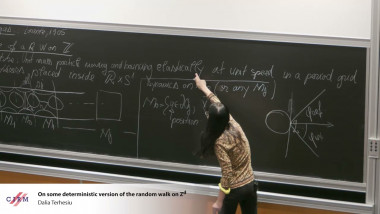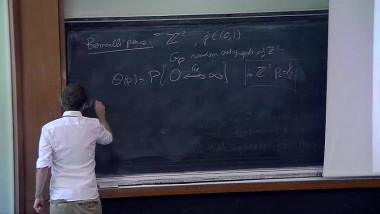Large scale reduction simple
Appears in collections : Thematic month on statistics - Week 3: Processus / Mois thématique sur les statistiques - Semaine 3 : Processus, Exposés de recherche
Consider a non-linear function $G(X_t)$ where $X_t$ is a stationary Gaussian sequence with long-range dependence. The usual reduction principle states that the partial sums of $G(X_t)$ behave asymptotically like the partial sums of the first term in the expansion of $G$ in Hermite polynomials. In the context of the wavelet estimation of the long-range dependence parameter, one replaces the partial sums of $G(X_t)$ by the wavelet scalogram, namely the partial sum of squares of the wavelet coefficients. Is there a reduction principle in the wavelet setting, namely is the asymptotic behavior of the scalogram for $G(X_t)$ the same as that for the first term in the expansion of $G$ in Hermite polynomial? The answer is negative in general. This paper provides a minimal growth condition on the scales of the wavelet coefficients which ensures that the reduction principle also holds for the scalogram. The results are applied to testing the hypothesis that the long-range dependence parameter takes a specific value. Joint work with François Roueff and Murad S. Taqqu
Keywords: long-range dependence; long memory; self-similarity; wavelet transform; estimation; hypothesis testing
















